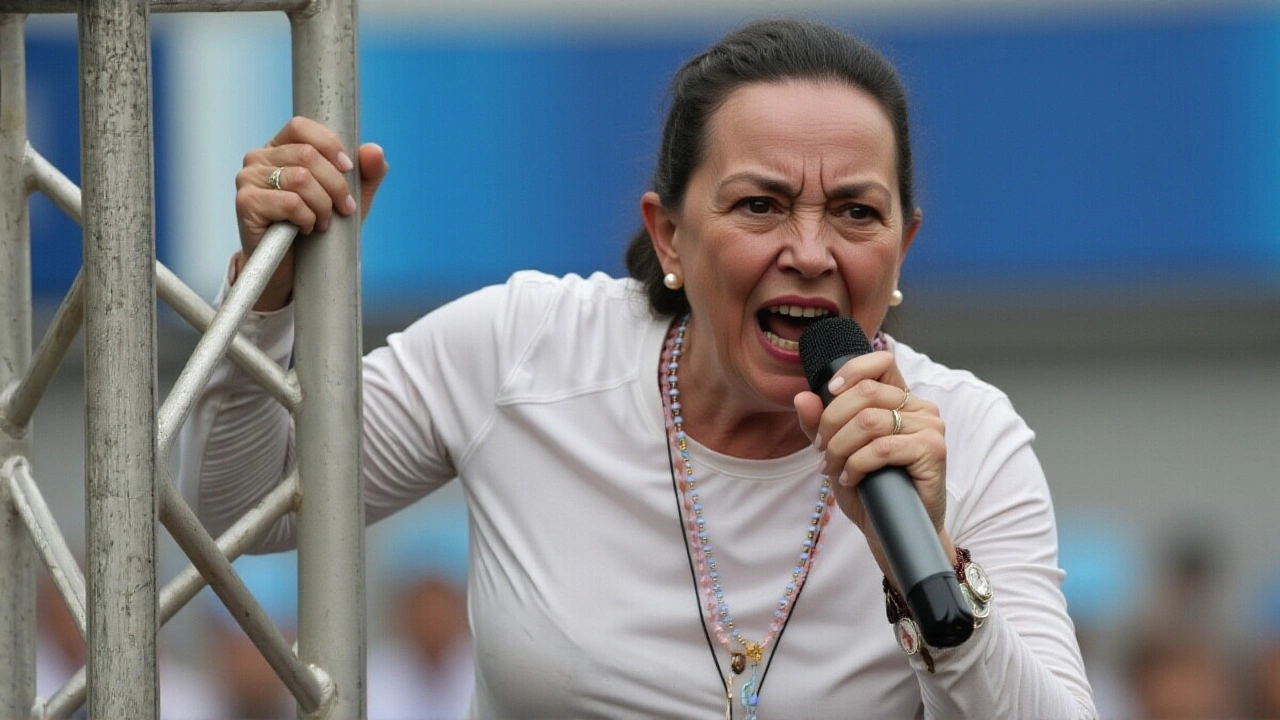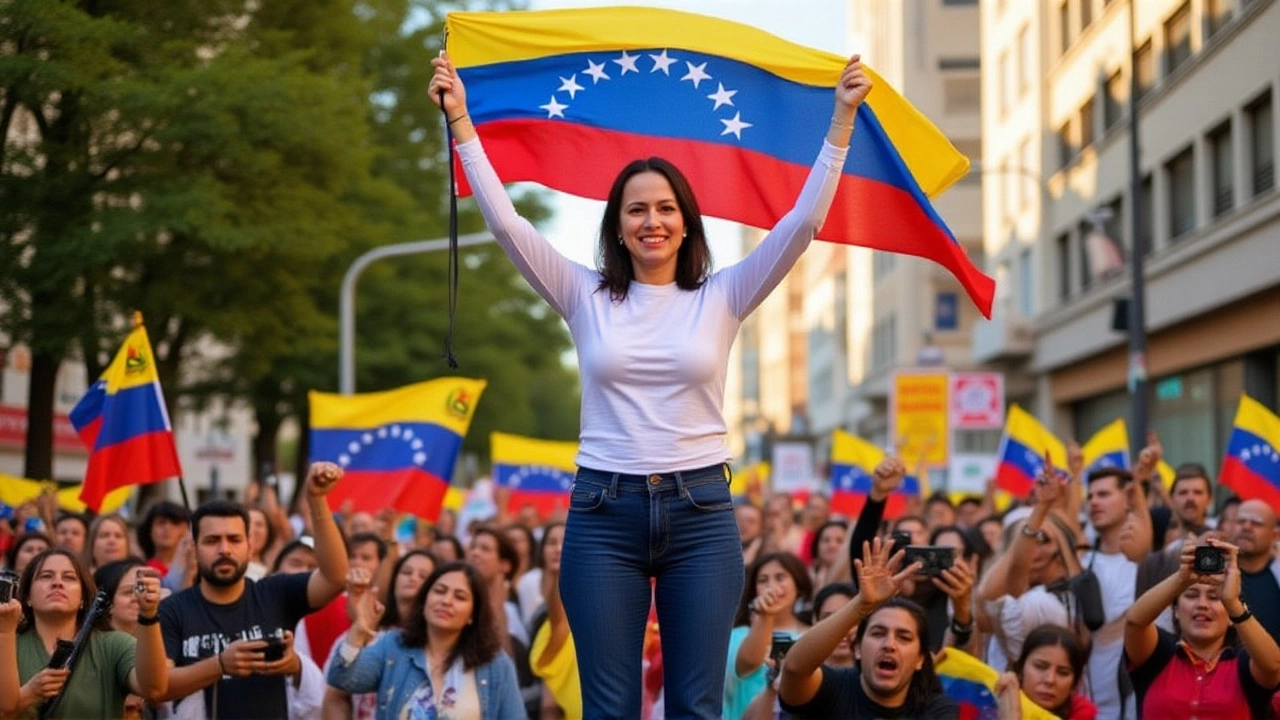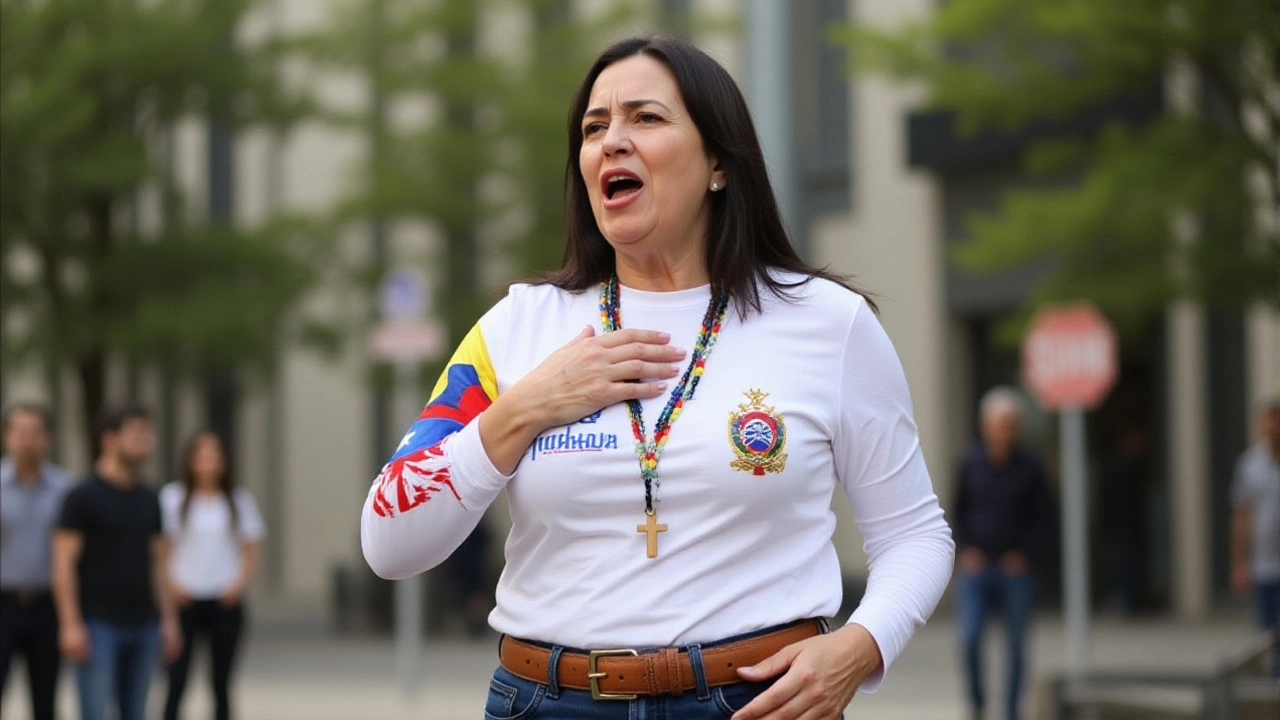 Oct, 10 2025
Oct, 10 2025
When María Corina Machado, opposition leader of Vente Venezuela heard the news on October 10, 2025, she was sitting in a modest flat in Caracas, the capital of Venezuela. Norwegian Nobel Committee announced at its headquarters in Oslo that she had been awarded the Nobel Peace Prize for “her relentless fight for democracy, transparency and human rights.” The statement was read by committee chair Berit Reiss‑Andersen at 11:00 AM Central European Time.
Vente Venezuela, the liberal political party she founded in 2013, has become a rallying point for dissent across the country.
Background of Machado’s Political Fight
Born on October 7, 1967, Machado entered public life in the early 2000s. At age 35 she co‑founded Sumate, a civic group aimed at improving electoral transparency. A decade later, in the 2010 parliamentary elections, she won the most votes of any candidate and took a seat in the National Assembly, where she quickly became a vocal critic of President Nicolás Maduro’s government.
Her criticism cost her dearly. In March 2014 she addressed the Permanent Council of the Organization of American States in Washington, D.C., after Panama granted her a platform to denounce human‑rights abuses. Just weeks later, Diosdado Cabello, then president of the Assembly, ordered her removal—a move described by international watchdogs as an arbitrary expulsion.
Nobel Committee’s Decision and the Ceremony Details
The Nobel Committee said it had received 351 nominations for the 2025 prize, including 52 organizations and 299 individuals from 54 countries. In a press release, the committee highlighted Machado’s “extraordinary courage” and her ability to keep democratic ideals alive despite years of persecution.
The award carries the usual monetary sum of 11 million Norwegian kroner—about $1.05 million at today’s exchange rates. The formal ceremony will be held on December 10, 2025, at Oslo City Hall, where Machado will join past laureates to receive the medal, diploma and prize money.
International Reactions
United Nations Secretary‑General António Guterres praised the decision, saying it “underscores the international community’s commitment to supporting democratic processes and human‑rights defenders worldwide.” The European Parliament had already passed a resolution in September 2024 recognizing Machado as the legitimate winner of the July 2024 Venezuelan presidential election, a contest the Maduro government claimed with 51.2 % of the vote amid widespread allegations of intimidation.
Meanwhile, the Organization of American States has announced plans to send a delegation to Oslo for the ceremony, signaling broader hemispheric support for Venezuela’s opposition.

Implications for Venezuela’s Democracy
For many Venezuelans, the prize is more than a personal honor; it’s a diplomatic lever. Analysts at the Brookings Institution note that the Nobel spotlight could pressure the Maduro regime to reopen dialogue with the opposition, especially as the United States and EU have already imposed new sanctions linked to electoral misconduct.
Domestically, the award may embolden civil‑society groups that have been operating underground. A recent poll by Datanálisis, conducted in September 2025, showed 62 % of respondents view Machado’s Nobel win as a “significant step toward restoring democratic norms.” Yet the regime remains wary. State‑run media in Caracas dismissed the prize as “foreign interference,” and Cabello warned that “no external accolade will change the will of the people who support the Bolivarian Revolution.”
What Comes Next?
Machado has said she will use the platform to call for new, free elections and for the release of political prisoners still held in Venezuela. The Nobel ceremony itself will be widely televised, offering a rare moment for her voice to reach millions of Venezuelans.
In the weeks after the ceremony, the United Nations is expected to convene a special session on Venezuelan human‑rights violations, and the European Union is preparing a package of humanitarian aid tied to political reforms. Whether these moves translate into tangible change remains to be seen, but the Nobel laureate’s new global stature is undeniable.

Key Facts
- Winner: María Corina Machado, opposition leader of Venezuela.
- Award: 2025 Nobel Peace Prize, 11 million NOK (~$1.05 million).
- Announcement date: 10 October 2025, Oslo, Norway.
- Committee chair: Berit Reiss‑Andersen.
- Prize ceremony: 10 December 2025, Oslo City Hall.
Frequently Asked Questions
How does the Nobel Peace Prize affect Venezuela’s opposition?
The prize gives Machado international legitimacy and a louder platform to demand free elections. It also forces foreign governments to address Venezuela’s democratic crisis, potentially unlocking new sanctions or aid tied to political reforms.
What were the main reasons the Nobel Committee cited for awarding Machado?
The committee highlighted her “extraordinary courage” and decades‑long struggle against authoritarianism, emphasizing her role in keeping democratic ideals alive despite personal risk, imprisonment threats and exile.
Who are the key international figures supporting Machado?
United Nations Secretary‑General António Guterres, European Parliament President Roberta Metsola, and the Organization of American States have all publicly praised her work and called for democratic reforms in Venezuela.
What is the estimated public opinion in Venezuela after the Nobel win?
A September 2025 Datanálisis poll found 62 % of surveyed Venezuelans view the Nobel award as a positive step toward democracy, while 27 % remain skeptical about its practical impact.
When and where will Machado receive the Nobel medal?
The ceremony is scheduled for 10 December 2025 at Oslo City Hall in Oslo, Norway, where Machado will join other laureates to receive the medal, diploma and prize money.